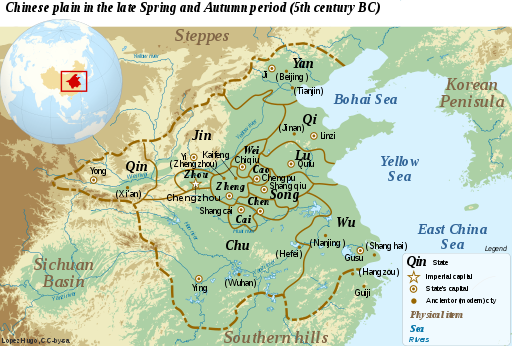Peace Treaties and Ancient China

In the sixth century BC a Sung statesman named Hsiang Shu (p. 56) lobbied the courts of multiple Chinese states, to try to reach an agreement to end the perpetual warfare. Even states that had little interest in negotiations found that they had no choice but to at least pretend to take part:
“The states had, of course, at least to pretend an interest in his idea. A Chin leader said, “War is destructive to the people, an insect that eats up the resources of a State, and the greatest calamity of all small States. If any one try to put an end to it, though we think it cannot be done, we must sanction his proposal. If we do not, Ch’u will do so, and proceed to call the States together, so that we shall lose the presidency of the covenants.” (Walker, 56).
As Walker describes (56-57) fourteen major states took part of in the discussion. Predictably, once an agreement was reached there was a dispute between the two most powerful states over who should sign first (57). The negotiations had gone so poorly that during the meetings “the Ch’u representatives even wore armor.” (57). In the end, even though an agreement was reached to end warfare, many states refused to sign, while the signatories ignored it (57).
As for statesman and peace-maker Hsian Shu, he sought a reward from the Prime Minister of Sung, to whom he presented a signed copy of the treaty. The Prime Minister responded with scorn, in a speech that deserves to be as frequently remembered in International Relations studies as the Melian Dialogue recorded by the Greek historian Thucydides. According to the Prime Minister of Sung, war was an inevitable tool of statecraft. To seek to abandon these tools was a delusion. He told Hsian Shu that he was lucky to have escaped without punishment, but now he was coming to him looking for a reward. The Prime Minister cut the copy of the treaty to pieces and threw it away (58).
Without the signature of all major states the peace treaty had no power, and the bitter wars continued.
